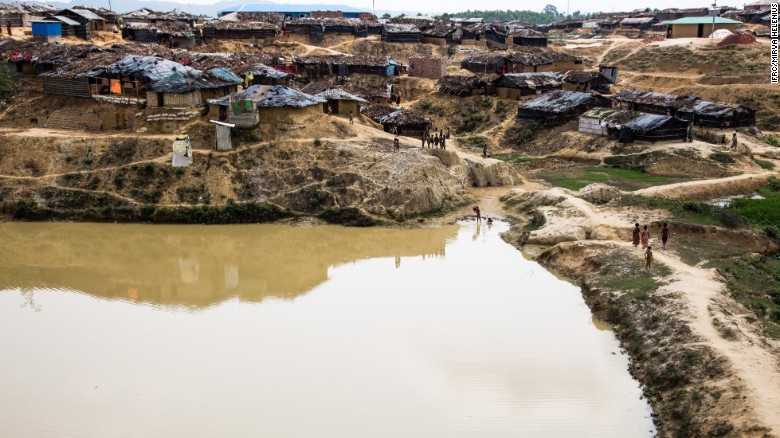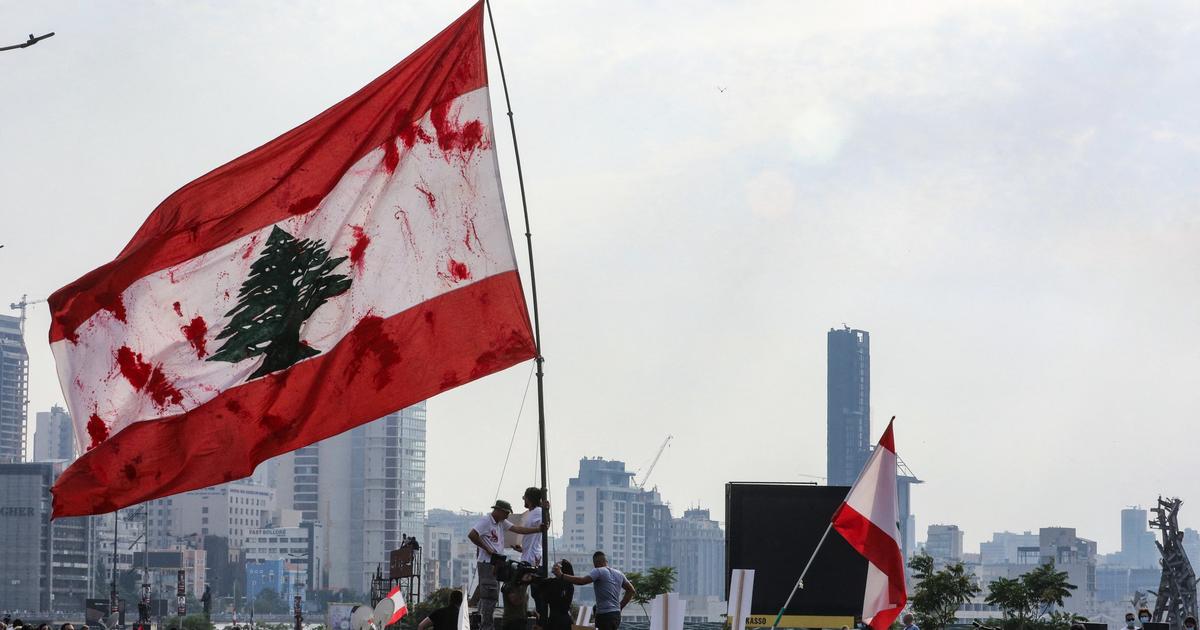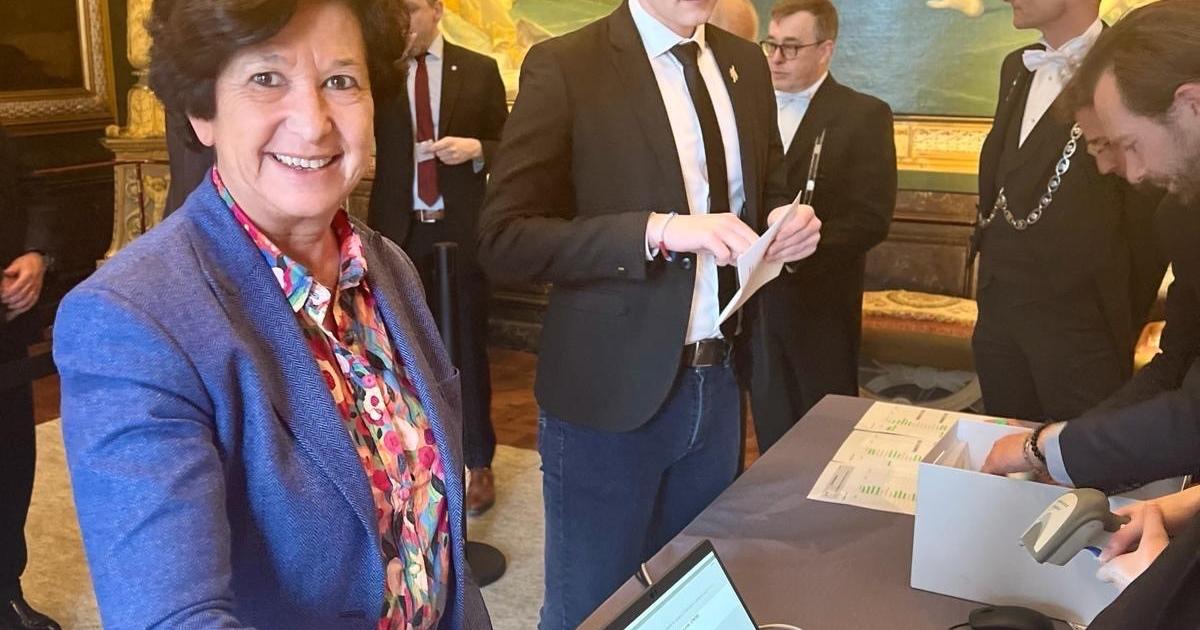Rapes, Burned Children and Murders: The Rohingya Massacre in Myanmar (2017) 1:47
(CNN) -
The Myanmar military said on Monday that it had detained key political leaders in response to electoral fraud and had declared a state of emergency, Reuters reported.
Myanmar Army seizes power in apparent coup after arresting Aung San Suu Kyi and ruling party politicians
Here's a look at Myanmar, a Southeast Asian country formerly known as Burma.
About Myanmar
(Data from the CIA World Factbook)
Area:
676,578 square kilometers (slightly smaller than Texas)
Population:
56,590,071 (July 2020 est.)
Average age:
29.2 years
advertising
Capital:
Naypyidaw
Ethnic groups:
Burmese (68%), Shan (9%), Karen (7%), Rakhine (4%), Chinese (3%), Indian (2%), Mon (2%), Other (5%)
Religion:
Buddhists (87.9%), Christians (6.2%), Muslims (4.3%), animists (0.8%), Hindus (0.5%), others (0.2%), none (0.1%) (2014 est.)
GDP (purchasing power parity):
US $ 329.8 billion (2017 est.)
GDP per capita:
US $ 6,300 (2017 est.)
Unemployment:
4% (2017 est.)
Other key data
Myanmar shares borders with China, India, Laos, Bangladesh, and Thailand.
The United States still officially calls the country Burma.
The United Nations High Commissioner for Refugees (UNHCR) estimates that there were more than 866,000 stateless persons and internally displaced persons in Myanmar in 2018, up from 849,000 in 2017.
The Rohingya are a stateless Muslim minority in Myanmar's Rakhine State believed to number around one million people (as of early 2017).
Myanmar does not recognize them as citizens or as one of the 135 recognized ethnic groups living in the country.
According to Human Rights Watch, the laws discriminate against the Rohingya, infringing on their freedom of movement, education and employment.
"It would be good if I died too": rape as a weapon of war against the Rohingya in Myanmar
According to the UN Intersectoral Coordination Group, 745,000 Rohingya refugees have fled Myanmar for Bangladesh since 2017, bringing the total population of Rohingya refugees in Bangladesh to more than 913,000.
(As of June 2019).
The suffering of Rohingya Muslims in Myanmar 3:52
Chronology
1824-1886 - Burma becomes part of British India after fighting three wars with Great Britain for 62 years.
January 1947 - After negotiating with the Anti-Fascist People's Freedom League (AFPFL), Britain agrees to grant Burma its independence.
July 1947 - AFPFL leader Aung San is assassinated.
January 4, 1948 - Burma becomes independent from the United Kingdom.
March 1962 - The military government under Ne Win is established after a bloodless coup.
August-October 1988 - Massive anti-government demonstrations take place in Burma.
The official figure for Radio Rangoon is 450 dead;
the actual number is believed to be much higher.
September 1988 - General Saw Maung seizes power in another military coup.
1989 - Burma changes its English name to Myanmar and the name of the capital from Rangoon to Yangon.
May 1990 - The board calls general elections.
Activist Aung San Suu Kyi's NLD (National League for Democracy) party wins easily, but the military refuse to hand over power.
April 23, 1992 - General Than Shwe replaces Saw Maung as head of the board.
July 23, 1997 - Myanmar joins the Association of Southeast Asian Nations.
March 2006 - Naypyidaw becomes the new administrative capital.
August 19, 2007 - Protests erupt in Yangon after the government raised oil and diesel prices by 100%.
September 22, 2007 - In her first public appearance in more than four years, Suu Kyi greets monks as they parade past her home in Yangon.
September 24, 2007 - Buddhist monks lead around 100,000 in the largest anti-government demonstrations since 1988.
September 26, 2007 - As protests continue, Myanmar security forces crack down, beating and gassing protesters and arresting up to 200 monks.
September 30, 2007 - UN Special Envoy Ibrahim Gambari meets with Suu Kyi and military officials (separately) to try to resolve the situation.
October 20, 2007 - The UN General Assembly passes a resolution condemning the government's repression and calls for the release of political protesters.
May 2, 2008 - A cyclone kills more than 70,000 people.
The United Nations later estimates that more than two million people have been severely affected by the storm.
May 20, 2008 - It is announced that the UN Secretary General, Ban Ki-moon, will be able to tour the area devastated by the cyclone.
In addition, aid shipments that cannot enter the country will be allowed to enter.
June 5-10, 2010 - More than 4,000 Karen people leave Myanmar for Thailand following clashes between the Karen National Union rebel group and the Myanmar Army.
June-July 2010 - Floods and landslides kill 68 people and displace thousands.
October 22, 2010 - Cyclone Giri hits Myanmar, leaving at least 27 dead and about 75,000 homeless.
November 7, 2010 - Myanmar holds its first elections in 20 years.
The Union Solidarity and Development Party, backed by the military, claims victory with 80% of the votes.
November 13, 2010 - Opposition leader Suu Kyi is released from house arrest.
January 31, 2011 - Myanmar convenes its first parliament in more than two decades in the capital, Naypyidaw.
February 4, 2011 - Parliament elects Prime Minister Thein Sein as president.
Suu Kyi's National League for Democracy party boycotts the elections, calling them a sham.
March 30, 2011 - A civilian government takes oath to replace the military junta.
October 12, 2011 - Dozens of political prisoners are released as part of a massive amnesty.
November 30, 2011 - Hillary Clinton arrives in Myanmar, the first visit by a US secretary of state in more than 50 years.
December 13, 2011 - The National League for Democracy is granted permission to register for future elections in Myanmar.
April 1, 2012 - Suu Kyi wins a seat in parliament in the first multi-party elections since 1990.
April 13, 2012 - British Prime Minister David Cameron arrives in Myanmar.
He is the first British Prime Minister to visit the country.
April 28, 2012 - EU foreign policy chief Catherine Ashton meets with Suu Kyi.
The European Union has suspended most of the sanctions it had imposed on Myanmar, citing the "transparent and credible" elections that brought Suu Kyi to power and other reforms.
April 29, 2012 - UN Secretary General Ban arrives in Myanmar to meet with President Thein Sein and Suu Kyi.
May 2, 2012 - Suu Kyi takes the oath of office in Myanmar's parliament, resolving a dead end that prevented her from occupying her seat in the legislature.
She and 33 other newly elected members of the National League for Democracy had been delaying their oaths due to objections to the wording of the oath they would have to take.
June 2012 - Riots erupt in the western state of Rakhine.
Religious violence leaves more than 200 dead and nearly 150,000 homeless, predominantly members of the Rohingya Muslim minority.
November 19, 2012 - US President Barack Obama becomes the first sitting US President to visit Myanmar.
Meets with President Thein Sein and activist Suu Kyi.
Obama Praises Suu Kyi's "Courage and Determination" in Myanmar
March 10, 2013 - Suu Kyi wins re-election as leader of the Myanmar National League for Democracy.
March 22, 2013 - A state of emergency is declared when ethnic clashes between Muslims and Buddhists lead to killings.
May 2, 2013 - US President Obama extends sanctions against Myanmar for one year while lifting the 1996 visa ban.
April 7, 2014 - The UN Special Rapporteur on Myanmar, Tomás Ojea Quintana, reports that the recent persecution of the Rohingya group "could constitute crimes against humanity."
May 15, 2014 - Obama extends sanctions against Myanmar for another year.
May 15, 2015: Obama extends sanctions against Myanmar for another year.
August 3, 2015 - Authorities say heavy monsoon rains the previous month left at least 47 dead and more than 200,000 displaced.
August 7, 2015 - Government officials say the death toll from the floods has risen to 88 and 330,000 more people have been affected.
Over 100 dead in Myanmar landslide
November 13, 2015 - Myanmar's electoral commission announces that Suu Kyi's National League for Democracy party won a majority in the country's first democratically held parliamentary elections.
They will elect the next president of the country.
March 15, 2016.
Myanmar's parliament elects Htin Kyaw as the country's new president.
Htin Kyaw was elected to office by 360 votes, more than a third of the 652 votes available from parliament.
Myanmar elects its first civilian president, after decades of military rule
October 9, 2016 - Some 300 men armed with knives, pistols and swords attack border posts in Rakhine State, killing nine police officers.
Rakhine State is home to a large population of Rohingya Muslims.
The attacks provoke intense repression by the Myanmar Army, calling them "clean-up operations" in Rohingya villages to find the suspects involved and recover their weapons.
February 3, 2017 - A UN report alleges that Myanmar security forces are carrying out a brutal campaign of killings, rapes and torture in Rakhine State.
Aye Aye Soe, a spokesman for the Myanmar government, says the government has seen the report and is "very concerned about the allegations" and will investigate.
August 25, 2017 - Myanmar state media reports that 12 security officers were killed during a series of coordinated attacks against at least 20 police posts and a military base in Rakhine state.
An insurgent group known as the Arakan Rohingya Salvation Army, formerly known as Harakat al-Yaqeen, or "Movement of Faith", claimed responsibility for the attack on Twitter.
In response to the attacks, the Myanmar military is renewing an offensive within the state against those it says are "terrorists".
September 11, 2017 - United Nations High Commissioner for Human Rights Zeid Ra'ad Al Hussein says Myanmar's ongoing military operation against the Rohingya minority appears to be an "example of an ethnic cleansing manual", but the full humanitarian situation in Rakhine State cannot be fully assessed due to Myanmar's refusal to grant access.
September 19, 2017 - In a 30-minute televised speech from Nyapyidaw, Suu Kyi fails to denounce the alleged atrocities against the Rohingya community and claims that the government needs more time to investigate the exodus of more than 400,000 members of the group from Myanmar.
Amnesty International describes the speech, in which Suu Kyi only once referred to the Rohingya by name, as a "mixture of falsehoods and blaming the victims".
Pope Francis did not name the Rohingya during his speech in Myanmar
December 12, 2017 - According to a report released by Doctors Without Borders (MSF), at least 6,700 Rohingya died as a result of violence in Rakhine state between August 25 and September 24.
More than 6,000 Rohingya were killed in a month of military heavy-handedness in Myanmar, according to Doctors Without Borders
December 2017 - Reuters journalists Kyaw Soe Oo and Wa Lone are detained after working on an investigation into the mass murder of several Rohingya villagers in Myanmar's Rakhine state.
March 12, 2018 - Myanmar Special Rapporteur Yanghee Lee says Myanmar's ongoing crackdown on the Rohingya may amount to genocide.
It states: "I am increasingly convinced that the crimes committed after October 9, 2016 and August 25, 2017 bear the stamp of genocide and demand responsibility in the strongest terms."
March 21, 2018 - The government announces that President Htin Kyaw has resigned due to health problems.
March 28, 2018 - Myanmar's parliament elects Win Myint as the new president.
March 31, 2018 - The UN announces that Myanmar and the United Nations have reached an agreement to work together to repatriate hundreds of thousands of Rohingya Muslims who have fled violence in the country over the past year.
May 22, 2018 - An Amnesty International report finds that members of the Rohingya militant group Arakan Rohingya Salvation Army (ARSA) allegedly massacred dozens of men, women and children, execution-style, in Hindu villages in Myanmar's Rakhine state in August 2017.
Jolie calls on Myanmar to end Rohingya crisis 0:37
September 3, 2018 - After being convicted of violating the Official Secrets Law during their investigation, Kyaw Soe Oo and Wa Lone are sentenced to seven years of forced labor by a Myanmar court.
Reuters, with a special mention of the two journalists, receives the Pulitzer Prize for International Reporting in April 2019.
The jailed journalists who won the Pulitzer 2:42
September 18, 2018 - A UN fact-finding mission publishes a lengthy 440-page report detailing the atrocities committed by the Myanmar Army against Rohingya Muslims, in support of their call for the country's generals to face a tribunal on charges of genocide.
May 7, 2019 - Reuters reporters Kyaw Soe Oo and Wa Lone are released after being imprisoned for more than 500 days.
They are released as part of an amnesty of 6,520 prisoners by President Win Myint.
Reuters journalists jailed in Myanmar were released after more than 500 days
August 22, 2019 - 3,450 Rohingya refugees, out of a list of more than 22,000 provided by Bangladesh, are allowed to return to Myanmar.
Caroline Gluck, UNHCR's Senior Regional Public Information Officer, said: “If any refugee expresses interest in returning, we would conduct a second interview with the individuals in a confidential setting to reconfirm their willingness and provide as much information as we can about the prevailing conditions. in Myanmar '.
It is not clear whether any refugees accepted the offer of voluntary repatriation.
January 23, 2020 - The International Court of Justice orders Myanmar to prevent acts of genocide against the Rohingya and to stop destroying evidence that could influence the case.
July 2, 2020 - A landslide caused by heavy rain kills at least 116 people at a jade mine in the Hpakant area of northern Myanmar's Kachin State.
Myanmar






/cloudfront-eu-central-1.images.arcpublishing.com/prisa/L7UV6HYZSBFUVLBENBP3VQG5QI.jpg)








